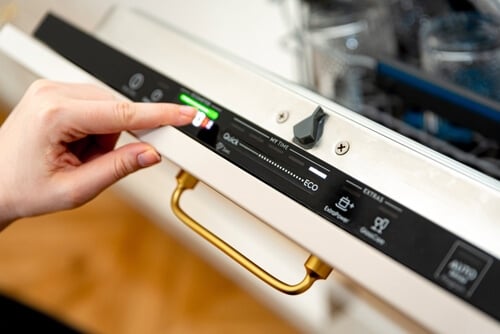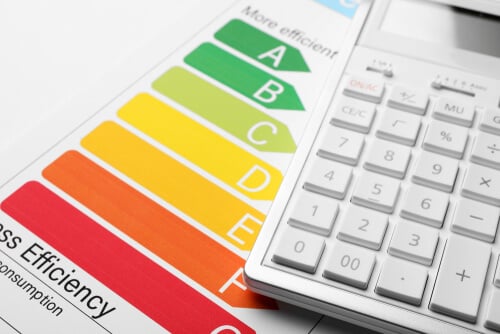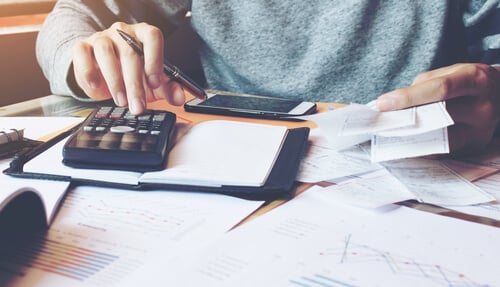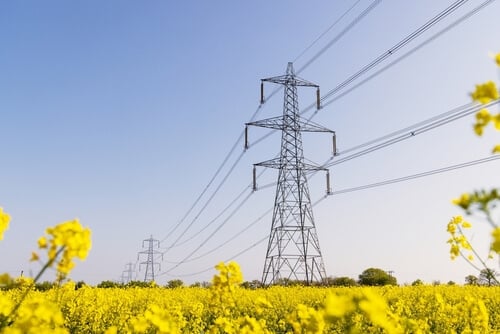If you decide to get a smart meter, you can say goodbye to estimated bills and hello to only paying for energy you use.
Let's look at whether they're the right choice for you.
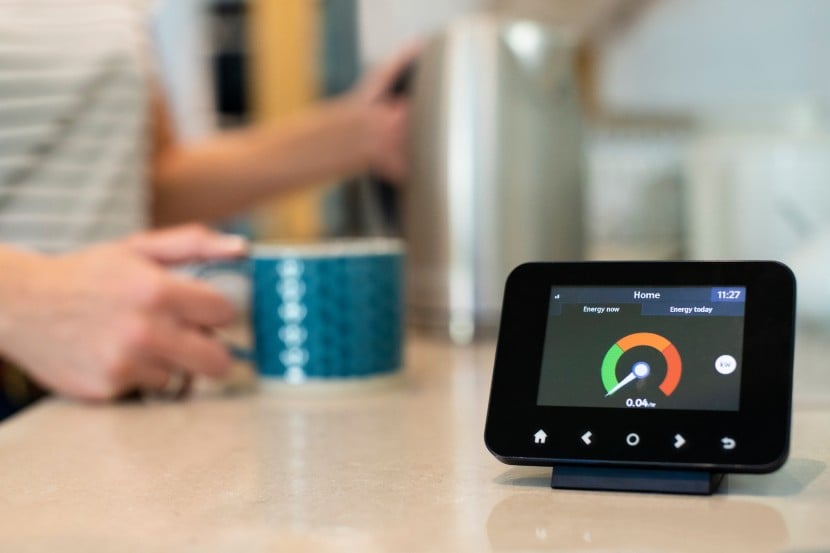
What is a smart meter?
A smart meter tells you how much gas and electricity you’ve used, just like a normal meter. It also sends your energy readings automatically to your supplier using a secure smart meter network. This means that you don’t have to take the time to manually submit your readings.
It also usually comes with an in-home display (IHD) that shows how much energy you’re using each day and how much it’s costing you. You should be able to see the meter update as you boil the kettle or watch TV. This might help you make better use of your energy and save some cash in the process.
Some suppliers also have smart meter apps. These give you a deeper look at how you use your energy and might even let you budget your use from the app itself.
Are smart meters compulsory?
Smart meters aren’t compulsory. Energy suppliers are mandated to offer one to every household by the end of 2025, but it’s your choice whether you accept one or not. If you don’t have one though and want to switch to a new tariff, the supplier might ask you to get one fitted as a condition of switching.
Can I switch energy supplier if I have a smart meter?
Yes, you can switch energy providers if you have a smart meter and there are deals available that you might want to switch to. However, depending on the model you have, the smart meter may go dumb. This is a problem with SMETS1 meters, but if you have a SMETS2 meter, it shouldn’t be an issue.
Should I get a smart meter?
It's up to you whether you get a smart meter or not, they aren't mandatory. There just might not be as many tariffs available for you in future if you don’t get one.It also depends on your circumstances.
For example, getting a smart meter installed might be tricky if you rent and your landlord pays for the energy.
What are the benefits of smart meters?
Some of the benefits of smart meters include:
- No more estimated bills so you can be confident your supplier is charging you the right amount
- Real-time updates on how you’re using your energy so you can see whether you can reduce your usage and therefore save money
- Automatic meter readings so you don’t have to manually submit anything
- Benefits for those on prepayment meters such as online or auto top-ups
Smart meters can detect people’s energy usage more accurately. As a result, energy suppliers could suggest more accurate energy tariffs.
Another positive is that smart meters could save you money. They do this by identifying when it’s cheapest to use energy. Most tariffs at the moment charge a flat rate for energy no matter what time you use it. These more frequent readings could be used to create a ‘time of use’ tariff. With this type of tariff, your supplier charges you different amounts for energy at peak and off-peak times.
Off-peak times could mean using power when it's cheaper for suppliers to buy. For example, in the middle of the day or late at night. Peak times could be in the early evening, when people return from work and start using their power at home.
Sometimes energy is cheaper to supply to you if it’s sunny or windy. According to GOV.UK, some people have even been paid to use electricity during windy days.
Smart meters should also help with energy supply, for example with power cuts. With a smart meter, engineers can identify power cuts quickly through the smart meter network and find out what caused them.
What are the potential downsides of smart meters?
There are some potential downsides to getting a smart meter:
- If you have a SMETS1 model, they tend to only work with specific suppliers. This means if you switched suppliers, this type of meter would go “dumb” and you'd have to submit your readings manually again.
- There may be a wait to get one installed as suppliers may not be focusing on installations in your region for the time being.
- You always see how much energy you’re using, some people might not like this if they're worried about their bills.
- There can be situations where crossed meters occur. This means your automatic readings are wrong and could cause billing issues.
How do I get a smart meter?
You can get a smart meter from your energy supplier. Call it and it can arrange a time to install one for you.
Energy suppliers in England, Scotland and Wales should all be providing smart meters for free.
I've got a prepayment meter - can I get a smart meter?
Yes, you can. And you might find it a lot easier to use than your current meter.If you have a prepayment smart meter, you should have all the features of a regular smart meter.
You should also be able to see how much you have left since you last topped up. This could minimise the chances of you unexpectedly running out of power.
Your supplier might be able to offer you new ways to top up, meaning you don't have to visit a shop. You might even be able to set your meter to top up automatically - this could be helpful if you tend to run out of power late at night when the shops are shut.
If you do end up switching from a prepayment meter to a credit or debit tariff, you don't need to change your smart meter either.
Can I get a smart meter if I'm renting?
If you’re the one paying the energy bills, then yes you can.
Although you may not need the landlord’s permission to get a smart meter, it's worth speaking to them before you get one installed. There may be something in your contract that prevents you from getting one fitted.
If your landlord pays the bills, then it's the landlord's responsibility to request the smart meter themselves.
How do I read my smart meter?
You don’t need to take meter readings with a smart meter – your supplier automatically gets these.
But your IHD unit should give you all the information you need if you want to keep track of what you’re spending on energy.
The specifics depend on your particular unit. But most should be able to show you your daily, weekly or monthly energy usage. Some show you the cost of this too.
What are the different types of smart meter?
There are 2 kinds of smart meter at the moment - SMETS1 and SMETS2. SMETS stands for 'Smart Metering Equipment Technical Specifications'.
SMETS1
This was the first industry standard smart meter. These were rolled out in 2013 and operate via the 3G network. This causes problems when you switch because the new supplier can’t pick up the connection. The meter therefore loses its smart functionality, though it still works as a basic meter.
Energy companies aren't installing these anymore and should eventually upgrade them.
SMETS2
This is the second generation of smart meter. If you’re getting a smart meter for the first time, you should get a SMETS2. SMETS2 meters operate via their own communication network that all suppliers can access, so when you switch, the new supplier can pick up the connection.
With the newer SMETS2 meter, you should be able to switch supplier without any hassle.
Can I upgrade my SMETS1 smart meter to an SMETS2?
You don’t need to upgrade your SMETS1 meter. It should eventually receive a software upgrade and move to the national smart meter network. This makes switching suppliers easier.
Are smart meters a health hazard?
No, smart meters do not pose a health hazard to users. The UK Health Security Agency carried out extensive research to assess whether exposure to smart meter radio waves could be damaging to humans. The Agency found that there was no health risk from smart meters, in accordance with research from other countries that use smart meters.
Will a smart meter save me money?
A smart meter won’t save you money on its own, but you can use the insights it provides to spend less on your energy. If the In-Home Display shows significant increases in energy usage when you do certain things, you can take steps to reduce your usage. This brings the cost of your bills down.


